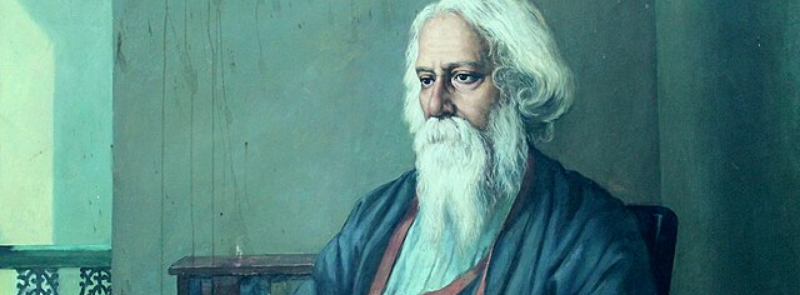
When It Occurs
Every May 7th or 25th day of Bengali Month Boishakh
Timeline
Days Passed (655)
# Hashtags
#RabindranathTagoreJayanti #IndianIndependence
Rabindranath Tagore Jayanti is celebrated annually on May 7 (or the 25th day of the Bengali month of Boishakh), marking the birth anniversary of Rabindranath Tagore, one of India’s greatest literary figures, poets, philosophers, and thinkers. Tagore was born in 1861 in Kolkata (then Calcutta) and is renowned for his contributions to Indian and world literature, his role in the cultural renaissance, and his impact on the Indian independence movement. He is the first non-European to win the Nobel Prize in Literature in 1913 for his collection of poems titled Gitanjali.
Significance of Rabindranath Tagore Jayanti
- Celebrating Literary Genius: Tagore Jayanti commemorates the life and works of Rabindranath Tagore, who made immense contributions to literature, art, music, and education. His literary works, including novels, essays, short stories, and poems, are celebrated across the world.
- Cultural Renaissance: Tagore was instrumental in promoting a cultural renaissance in India during the colonial period. His works encouraged Indians to embrace their cultural identity while fostering global understanding and universalism.
- Social and Political Thought: Rabindranath Tagore was an advocate of humanism, universalism, and anti-colonialism. He critiqued narrow nationalism and promoted the idea of a world without borders, where humanity is united.
- Contribution to Education: Tagore was a pioneer in modern education, founding Visva-Bharati University in Santiniketan, where the emphasis was on a holistic approach to education, integrating the arts, literature, nature, and culture with formal learning.
About Rabindranath Tagore
- Born: May 7, 1861, in Jorasanko Thakurbari, Kolkata
- Died: August 7, 1941
- Achievements:
- Nobel Prize for Literature in 1913 for Gitanjali
- Composed the national anthems of both India ("Jana Gana Mana") and Bangladesh ("Amar Shonar Bangla")
- Wrote numerous poems, essays, novels, dramas, and songs that form an integral part of Indian and Bengali culture
- Philosophy: Tagore’s worldview was deeply spiritual and humanistic. He envisioned a world where people lived in harmony with one another and nature. His philosophy is reflected in his educational practices, artistic works, and political views.
Key Contributions of Rabindranath Tagore
-
Literature: Tagore’s contributions to Bengali literature are unparalleled. His works include:
- Gitanjali (Song Offerings) – A collection of poems that earned him the Nobel Prize
- Ghare-Baire (The Home and the World) – A novel exploring the conflict between nationalism and personal ideals
- Chokher Bali – A novel delving into themes of love, jealousy, and betrayal
- Shesher Kobita – A poetic novel that critiques conventional societal norms
-
Music and Art:
- Tagore composed over 2,000 songs, collectively known as Rabindra Sangeet. These songs are integral to Bengali culture and address a range of themes, including devotion, love, nature, and patriotism.
- His paintings and drawings were unconventional and abstract, showcasing his innovative spirit in the arts.
-
Education:
- Tagore founded Visva-Bharati University in 1921, a unique institution that emphasized learning in a natural environment, fostering creativity, and understanding of different cultures.
- His approach to education was holistic and integrated with the arts, emphasizing free thought, self-expression, and human values.
-
Philosophy and Political Thought:
- Tagore was a critic of nationalism in its extreme forms and advocated for global humanism. He believed in the unity of mankind, transcending national and cultural boundaries.
- Though a critic of British colonial rule, he renounced knighthood in 1919 after the Jallianwala Bagh Massacre as a protest against British oppression.
-
Social Reform:
- Tagore was a progressive thinker who supported women’s rights, education, and rural upliftment.
- He was involved in various rural reconstruction efforts and believed in uplifting India’s villages through education, social reform, and economic development.
Celebrations of Rabindranath Tagore Jayanti
Tagore Jayanti is widely celebrated in West Bengal, Bangladesh, and among Bengali communities worldwide. The celebrations include:
-
Cultural Programs:
- Special cultural programs are organized in schools, colleges, and literary societies. These include recitations of Tagore’s poems, performances of Rabindra Sangeet, theatrical adaptations of his plays, and art exhibitions showcasing his works.
-
Events at Visva-Bharati:
- The celebrations at Visva-Bharati University, Santiniketan, are grand, with students and faculty paying homage to Tagore through various cultural performances, discussions on his works, and programs that reflect his educational vision.
-
Art and Literary Competitions:
- In schools and colleges, various art, essay writing, and poetry recitation competitions are held to engage students in learning about Tagore’s life and contributions.
-
Processions and Prayer Meetings:
- Some communities hold processions and prayer meetings to pay homage to Tagore, reflecting on his spiritual and philosophical teachings.
-
Commemorative Events:
- In Kolkata, Jorasanko Thakurbari (Tagore’s ancestral home, now a museum) hosts commemorative events, where his legacy is honored through exhibitions, lectures, and cultural programs.
-
Bangladesh:
- In Bangladesh, where Tagore is equally revered, Rabindra Jayanti is celebrated with fervor. Cultural programs, music festivals, and recitals of Rabindra Sangeet mark the day across the country.
Tagore’s Legacy
Rabindranath Tagore’s influence extends far beyond his lifetime. His legacy includes:
- The enduring popularity of his songs, poetry, and novels, which continue to inspire generations.
- His contributions to education and the founding of Visva-Bharati University, which remains a prestigious institution for the arts and humanities.
- His role in fostering a spirit of internationalism, cultural unity, and spirituality, which still resonates in today’s globalized world.
- His humanistic vision that advocates for equality, social justice, and peace.
Conclusion
Rabindranath Tagore Jayanti is not just a celebration of the birth of one of India’s greatest thinkers, but a day to reflect on his teachings, his artistic contributions, and his timeless philosophy. It serves as a reminder of the importance of culture, education, creativity, and universal brotherhood.


